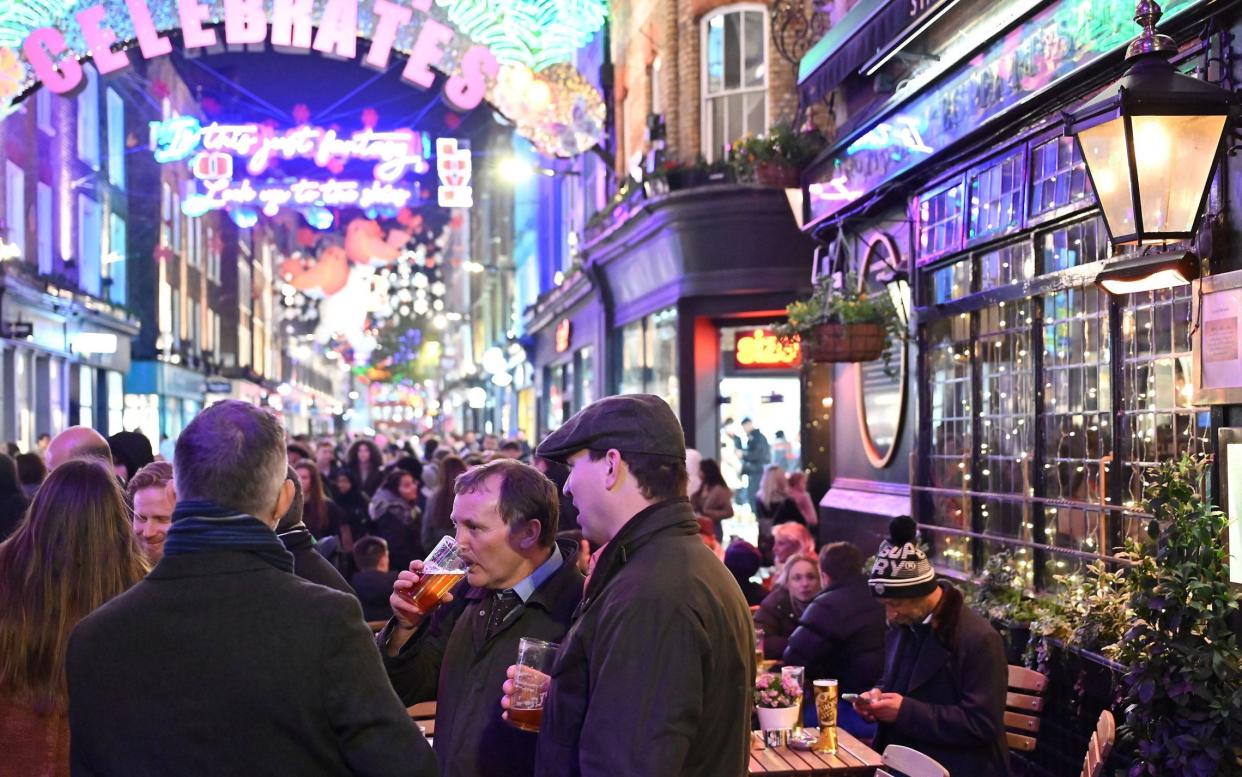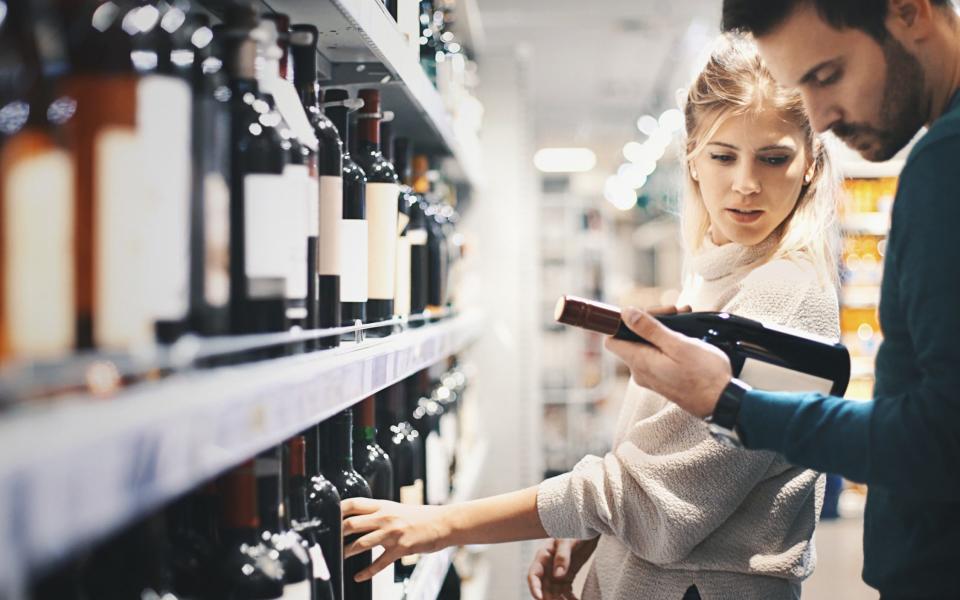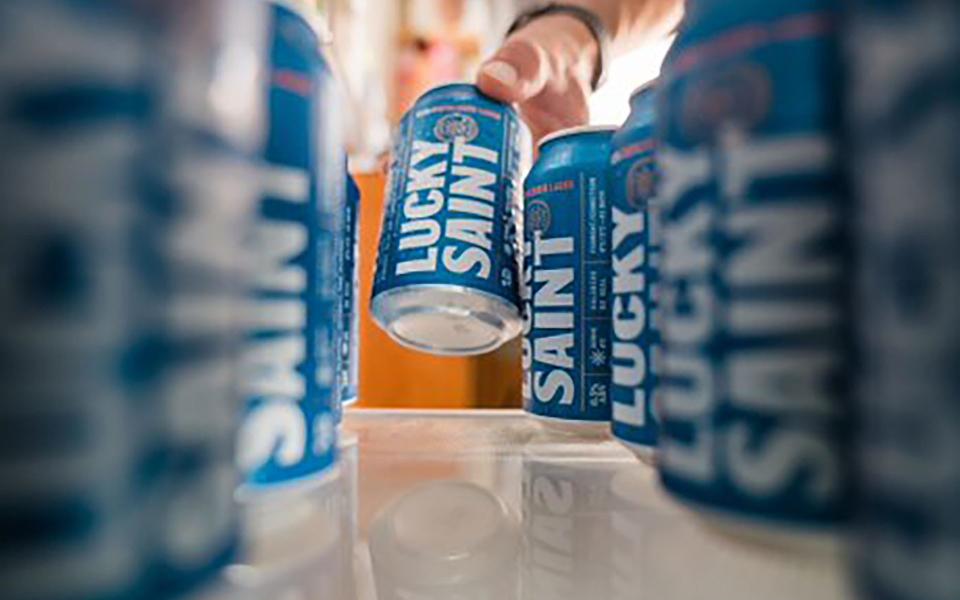Rise of non-alcoholic drinks spells end of the boozy Christmas

Sales of non-alcoholic drinks have surged as Christmas party hosts seek to cater for health-conscious guests who want to avoid hangovers.
The sale of drinks with low or no alcoholic content over the past week is up 46 per cent compared with the same period last year, data from Waitrose revealed.
Non-alcoholic “spirits” – a key ingredient in festive mocktails – have proved particularly popular, with sales up 85 per cent.
One in five people said they were buying drinks that are zero-alcohol and low-alcohol (a maximum of 1.2 per cent by volume) for guests when entertaining, a survey of 2,000 adults by the supermarket found.
Of those who are choosing to drink less, nearly half said it was to improve their health, with men more likely than women to say this was their reason for cutting back. Others are choosing zero alcohol alternatives because they need to drive.
But the alternatives are not completely replacing traditional Christmas drinks, with research from retail analysts Kantar finding that 99 per cent of those buying low or no alcohol options also buy the alcoholic versions.

Rob Hobson, a nutritionist and author of Unprocess Your Life, said a wider variety of options meant that even those working in high-pressure industries including finance were choosing to drink less alcohol.
He said: “The trend for lads getting wasted, especially in the younger generation, feels a bit old-fashioned now. Because they’ve got more access to it [low or no alcoholic drinks], they’re willing to explore it a bit more.”
Younger people are less likely to enjoy a drink, with 35 per cent of those under the age of 35 saying they would be moderating their drinking, according to the supermarket survey.
Mr Hobson said that people no longer wanted to go to work with a hangover, and had become more health conscious.
Pierpaolo Petrassi, a wine and beer expert from the supermarket said: “For a long time in Europe there’s been no stigma attached to no or low-alcoholic drinks – it’s thought to be just as grown up, just as interesting, just as appealing as an alcoholic drink. But now, as people become more health-conscious, we’re finally coming round to this idea.”
More men are considering giving up drinking or reducing their alcohol intake over the festive period as they become more health conscious, experts said.
Dr Ben Carvosso, a nutritionist, said: “I’ve seen more and more men reducing their alcohol intake and opting for low or alcohol-free alternatives. Mental health and wellness are a big concern and choosing low or alcohol free options promotes both.”

Some of the best-selling no or low alcoholic brands have seen record sales this year, including Heineken’s 0.0, while sales of Guinness 0.0 have more than doubled.
Martin Preston, founder of private addiction clinic Delamere, said it was becoming more socially acceptable not to drink.
“If we look at the younger generation, there is a much better awareness and education about health and lifestyle. I don’t think there is the glamour that there perhaps was 20 years ago around the drinking culture,” he said.
Mr Preston, who has been sober for nearly 20 years, said that for drinkers who are dependent on alcohol he wouldn’t recommend low and no alcohol options, especially at Christmas.
He said: “I have to be quite rigorous and vigilant around my sobriety. I wouldn’t risk liquor chocolate, I wouldn’t go anywhere near zero or low alcohols. Having a clear, non-negotiable boundary is really necessary.”
One in three men still feel uncomfortable ordering an alcohol-free beverage in the pub, a report from low-alcohol brand Lucky Saint found in June.
Luke Boase, founder of the beer company, said: “Lucky Saint is on draught in over 1,000 pubs across the UK. The pint is deeply entrenched in our socialising culture. So having an alcohol-free pint helps those not drinking to feel part of the occasion.”

